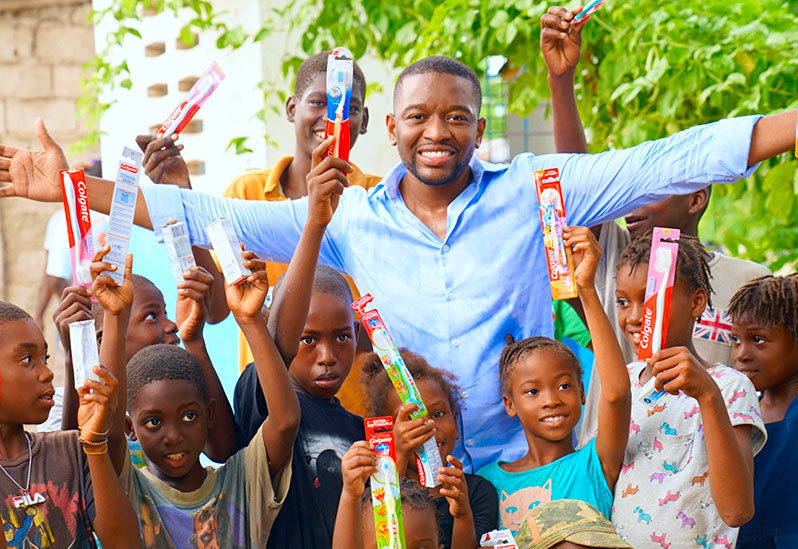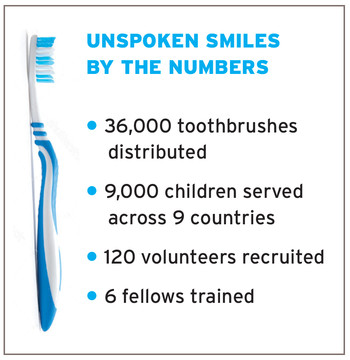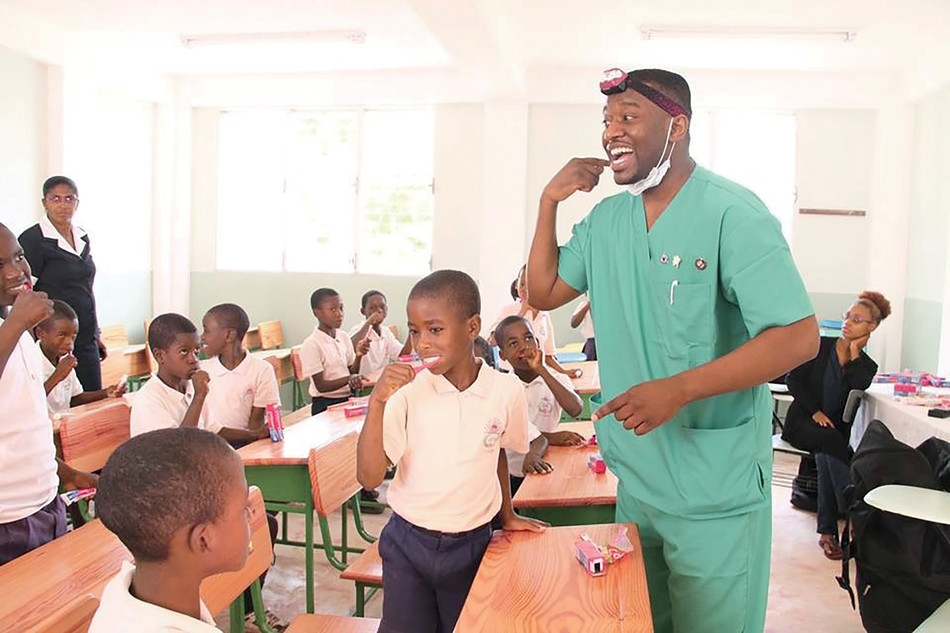Compared with crises like world hunger, deadly viruses, and poor sanitation, dental cavities might sound like a relatively minor humanitarian concern. But according to Jean Paul Laurent ’17SIPA, tooth decay is “one of the world’s most underpublicized health crises,” and he’s determined to tackle it one mouth at a time.
“The World Health Organization estimates that nearly 3.58 billion people are affected by oral diseases,” says Laurent, the founder and CEO of Unspoken Smiles, a nonprofit that promotes preventive dental care for children in underserved communities. “By the time you’re twelve or thirteen, you have most of your permanent teeth” — teeth that, without proper attention, can be more susceptible to aggressive decay, infections, and gum disease.
Since 2014, Unspoken Smiles has taught approximately nine thousand kids the art of effective oral hygiene. The nonprofit collaborates with schools around the world — in Haiti, the Dominican Republic, Guatemala, El Salvador, Costa Rica, Romania, India, and Iraqi Kurdistan, as well as low-income neighborhoods in New York City — to integrate dental care into daily learning. Over the course of twelve weeks, students are given lessons on everything from the correct way to brush and floss to the harmful effects of sugar. “We want children to develop healthy habits for life,” explains Laurent. The organization also gives each student a one-year supply of toothbrushes and subsidizes dental screenings and, if needed, follow-up care from local providers.
Although oral disease can affect anyone across the socioeconomic spectrum, a lack of access to high-quality treatment inevitably affects some populations more than others. “In many of the communities we serve, people don’t see dentists for years,” says Laurent. When people in under-resourced areas do seek care for painful cavities or abscesses, “teeth that could be treated with a simple filling or root canal often get pulled. You end up leaving beautiful children and adults with missing teeth, which can impact their health, diet, and self-esteem.”
Laurent, who moved to the United States from Haiti when he was twenty-one (“with a suitcase and a dream,” as he puts it), was inspired to start Unspoken Smiles after the 2010 Haitian earthquake. At the time, he was studying dental hygiene at NYU with plans to become a dentist. But after traveling to his home country to help with relief efforts — specifically, providing free dental screenings and cleanings for local children — he had a change of heart. “People were lining up to access services, and I realized there was a strong need for this kind of work,” he says. Laurent finished his dental-hygiene degree in 2011, but he pivoted to a career in nonprofit leadership and piloted Unspoken Smiles in Haiti while studying at Columbia’s School of International and Public Affairs.
Laurent says that by expanding access to oral-health education and care, he hopes to inspire not only better brushing habits but also a new generation of providers. In 2020, Unspoken Smiles introduced a fellowship program aimed primarily at young minority women who want to start careers in dentistry. The participants have served as instructors in the organization’s education programs. “When children see a person of color who looks like them coming to their school to teach them about oral health, some will be inspired to become dentists themselves one day,” says Laurent. “Creating a pipeline that empowers more people to go into dentistry and ultimately serve their communities will be one of our greatest achievements.”
This article appears in the Fall 2021 print edition of Columbia Magazine with the title "The Smile Saver."





